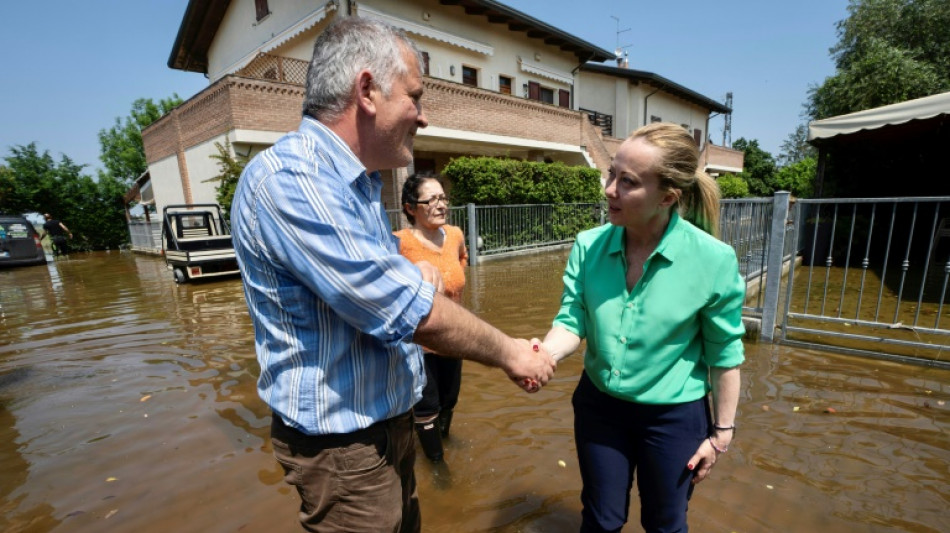Italian Prime Minister Giorgia Meloni on Tuesday announced a two-billion-euro ($2.2-billion) package to help northeastern areas affected by floods that killed 14 people, displaced thousands and left swathes of farmland submerged.
After an emergency cabinet meeting, Meloni declared help for households, businesses, farms, transport systems, schools, healthcare services and the tourism industry, while cautioning that the full extent of the damage has still to be determined.
"In the current situation in which Italy finds itself, finding two billion euros in a few days is not an easy thing," said Meloni, who visited the worst-hit areas of the Emilia Romagna region on Sunday.
"We clearly know that we are talking about emergencies, that there will be a reconstruction phase in which we are not yet able to quantify the overall need and the damage," she added.
Some flooded areas, focused in the southeast of Emilia Romagna, remain under water after six months' worth of rain fell over just 36 hours a week ago.
Around 23,000 people were still unable to return to their homes, officials said Tuesday, with 2,700 sleeping in emergency shelters.
After the region requested a special commissioner to oversee the crisis, Meloni said the task would go to the man appointed just weeks ago to deal with what had been a national drought.
"It's a bizarre transition whereby today the commissioner of drought is also dealing with floods," said Meloni.
- Tax on museum tickets -
The money is being diverted from different departmental budgets, with no immediate indication on the impact on debt-laden Italy's public finances.
Almost half has been earmarked to help employees and the self-employed, while there are also funds to help businesses, particularly exporters, and farmers, including those who have to replace damaged machinery.
Meloni said that businesses and taxpayers in affected areas would also benefit from a suspension of tax and mortgage payments.
The package also calls for a temporary one-euro hike in the price of tickets for state-run museums, to begin mid-June for three months.
The floods were the second to hit the area within weeks, following a deluge earlier in May that killed two people.
In the most recent disaster, almost two dozen rivers burst their banks.
Water flooded entire neighbourhoods in the wealthy region, which boasts both rich agricultural farmland and industry.
- 'Lost everything' -
In the province of Ravenna, where schools reopened on Tuesday, teams from Slovenia and Slovakia helped pump water from sodden areas overnight.
But in nearby Forli, schools remained closed until Wednesday due to continuing disruption on the road network.
The region estimates that damage worth more than 620 million euros has been caused to infrastructure, including roads and railways.
Agricultural lobby Confagricoltura said at least 10 million fruit trees will have to be uprooted, and possibly as many as 40 million.
"There are people who have lost everything," said the head of the Emilia Romagna region, Stefano Bonaccini.
"Some sectors have been dramatically affected," he told reporters in a joint appearance with Meloni.
"I am thinking of agriculture even more than tourism but both are examples of sectors that employ many seasonal workers."
Some 14 mostly inactive bombs from World War I or World War II also emerged from the floodwaters, which were "all blown up as a precaution" by the army, a local military source said.
Italy has been beset by a number of extreme weather events in the past year, which many people -- including former premier Mario Draghi -- have linked to climate change.
A dozen people died after flash floods in the Marche region in September, while a landslide on the island of Ischia in November killed 12.
D.Jayaraman--BD
